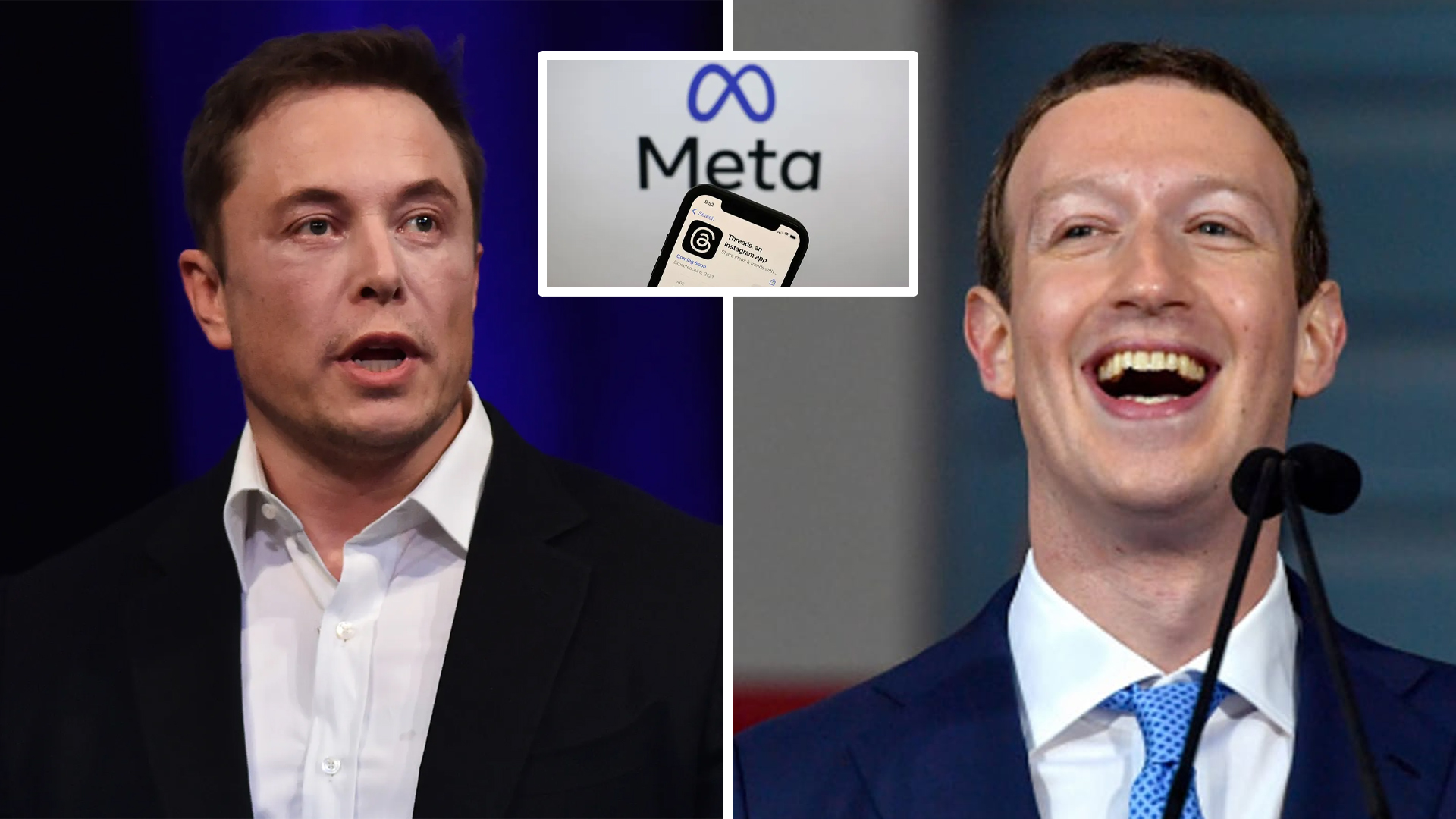The drama in the tech world unfolded spectacularly this Thursday, as Mark Zuckerberg, the founder of Meta, launched a new application known as Threads. This move came right on the heels of the recent controversy sparked by Elon Musk, the new owner of Twitter, who instigated a wave of user dissatisfaction due to his policy changes on the platform.
After a significant period of silence on Twitter, Meta’s creator, Mark Zuckerberg, returned to the social networking site to make a high-impact statement. With over a decade since his last tweet, Zuckerberg chose this moment to post again, seemingly seizing the opportunity to take a subtle dig at Musk.
Earlier today, Meta proudly unveiled Threads, the latest product in their lineup. This seemed strategically timed to capitalize on the recent tumult caused by Musk’s new policies on Twitter, which has been in the hot seat of public criticism. Threads, therefore, seems to be presented as a timely alternative for disgruntled Twitter users.
Almost eleven years have passed since Zuckerberg’s last engagement with Twitter. Therefore, his decision to break this lengthy silence was indeed noteworthy. Marking this occasion, he opted to share a well-known meme featuring two Spider-Men in an identical stance, apparently facing off with each other. This meme-driven message can be construed as an indirect challenge to Musk, further intensifying the competition between the two tech titans.
To further add to the intriguing context, this tweet was posted a mere fortnight after rumors surfaced that the two influential CEOs were considering a literal showdown – a cage fight. While it remains unclear whether this will materialize, the metaphorical duel is certainly underway.
However, not one to be overshadowed, Musk quickly delivered a counterpunch, not on Twitter but on Instagram. Using his own platform to return the jab, Musk asserted: “It is infinitely preferable to be attacked by strangers on Twitter, than indulge in the false happiness of hide-the-pain Instagram.”
The undercurrents of this statement seem to suggest that Zuckerberg is opportunely exploiting the controversial decisions made by the newly appointed Twitter CEO. Musk, who recently acquired Twitter for a staggering $44 billion in October, quickly implemented a series of significant changes.
One of Musk’s first notable moves was to downsize the company, resulting in the unfortunate dismissal of several thousand employees. Following this, he made a controversial change to the content moderation policies and introduced a paid model for Twitter verification. These changes posed several technical challenges, not only for the average users but also for advertisers who heavily rely on the platform for their business needs.
One of Musk’s most contentious decisions was to impose a limit on the number of tweets a user could view per day. A measure that Musk defended as “temporary,” this policy was aimed at combating data scrapers and bots. However, this step was not met with favorable responses and instead earned him widespread criticism from users globally.
Capitalizing on this discontent, Zuckerberg, in a post on Threads, proposed an alternative vision. He advocated for a “public conversations app with 1 billion-plus people on it,” a barb apparently aimed at Twitter. Critiquing Twitter’s failure to capitalize on its potential, Zuckerberg said, “Twitter has had the opportunity to do this but hasn’t nailed it. Hopefully, we will.”
As the proverbial dust settles on the latest round of titanic clashes in the tech industry, observers, users, and stakeholders alike hold their collective breath in anticipation of the next course of action. With Meta’s Threads freshly launched into the market and Twitter’s policies causing a stir in the user community, what comes next could redefine the trajectory of social media engagement and platform supremacy.
Mark Zuckerberg’s recent public stance, signified by his return to Twitter after over a decade and the launch of Threads, hints at an ambitious plan to potentially reshape the landscape of social networking. However, it’s worth mentioning that this audacious move isn’t just a show of competitive spirit but also a reflection of Meta’s commitment to adapt and innovate in the face of industry upheavals. Should Threads prove successful in delivering on its promise and manage to seize a significant chunk of the discontented Twitter populace, it could mark a significant victory for Meta.
On the other hand, Elon Musk’s series of controversial changes to Twitter’s policies has unquestionably shaken the status quo. While some may see it as a high-risk gamble, others may view it as an aggressive attempt to streamline the platform, notwithstanding the subsequent backlash. However, it’s crucial to remember that even though some of these decisions have received widespread criticism, they could also be precursors to unforeseen improvements and innovations.
The unfolding scenario is a vivid display of how social media platforms are not static entities but are constantly evolving, often sparked by the rivalry between their creators. This competition fuels innovation and drives these platforms to reinvent themselves continually, in pursuit of user satisfaction and market domination.
As spectators to this digital chess game, we can only wait and anticipate the potential strategic moves and countermoves that may shape the future of these social media behemoths. Whether Zuckerberg’s recent jab will be seen as merely a momentary skirmish in the history of social media, or whether it will set the stage for a dramatic new battle in the ongoing war for social media supremacy, only time will reveal.
In this volatile context, the ultimate deciding factor will be the platforms’ ability to satisfy their user base while consistently innovating and evolving. Whichever way this battle tilts, the ensuing evolution of social media is set to usher in a new chapter in digital communication and interaction, providing new paradigms that could redefine how we connect, share, and engage on these platforms.
As we stand at the brink of this pivotal moment in social media history, the potential outcomes are as thrilling as they are unpredictable, promising a future that is certain to be anything but dull.

